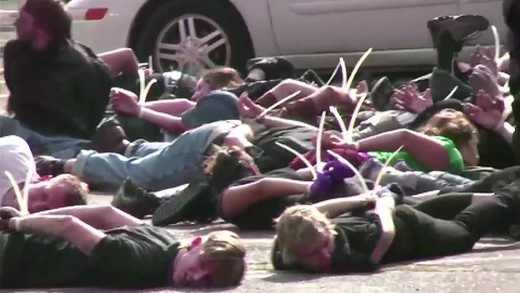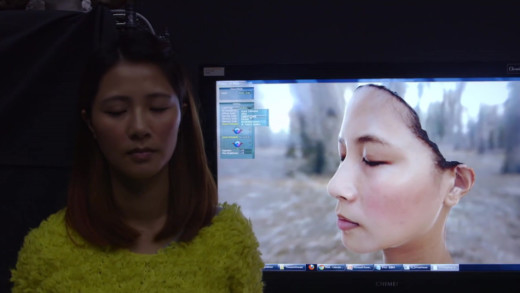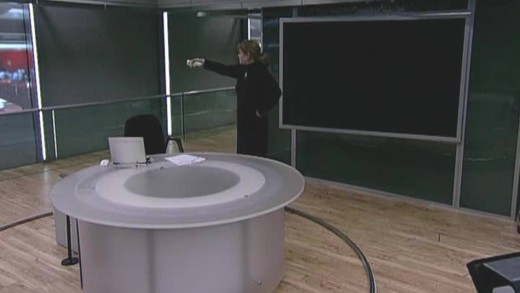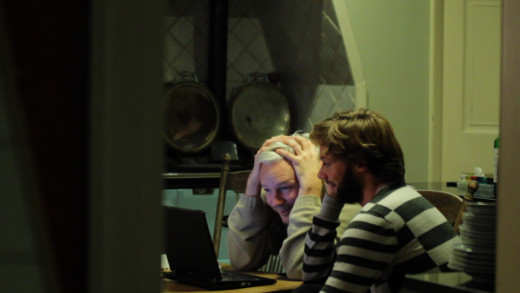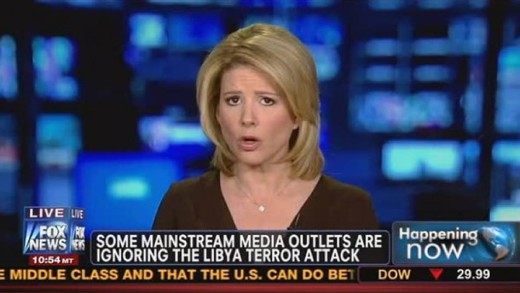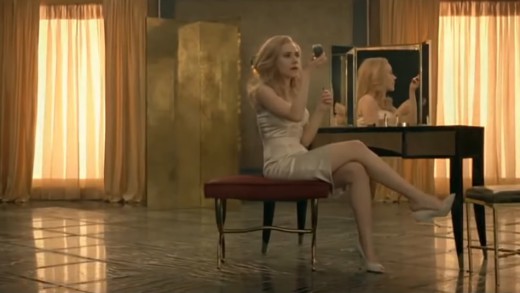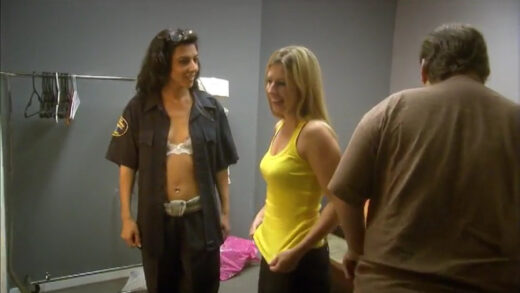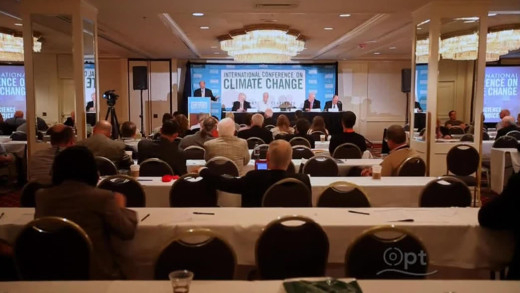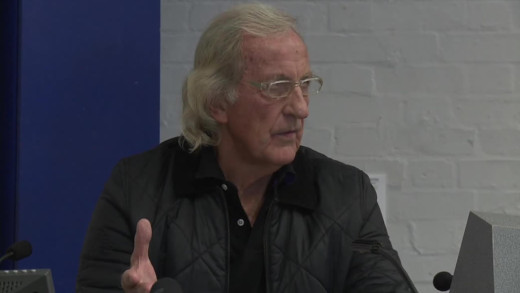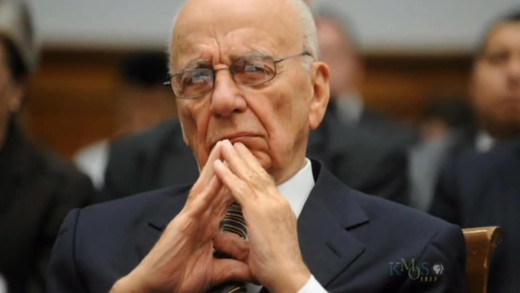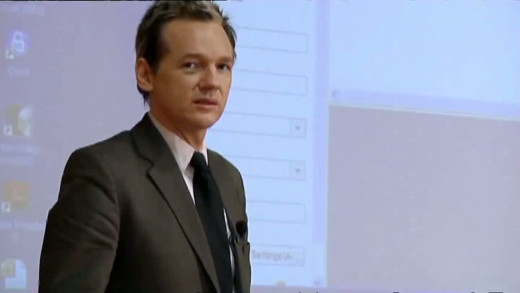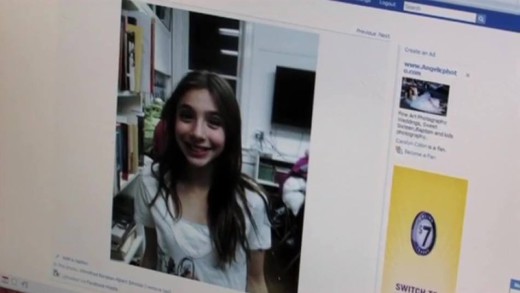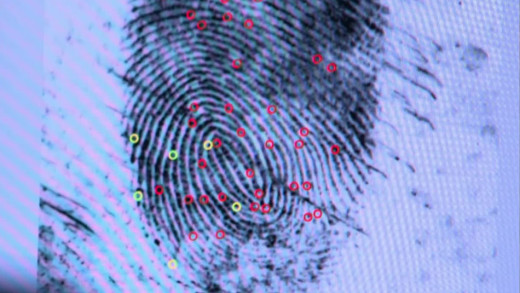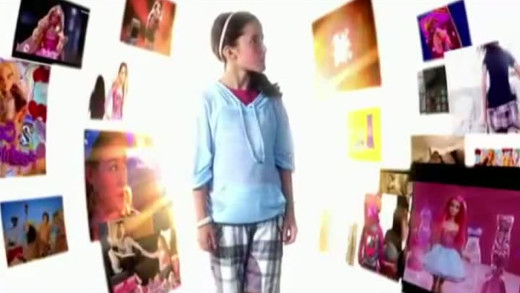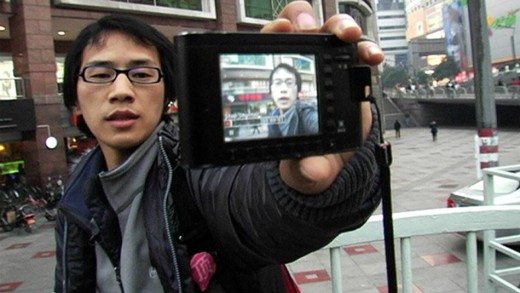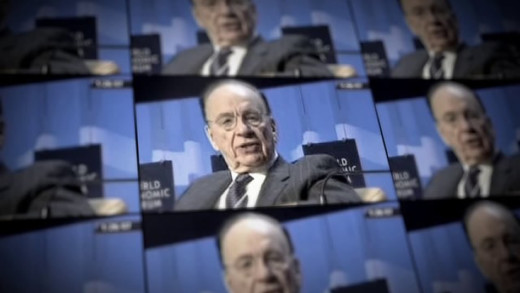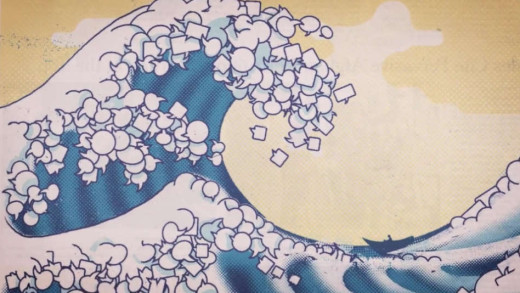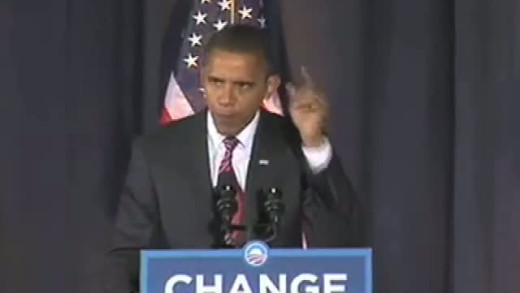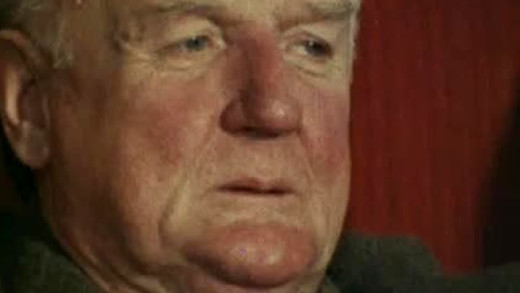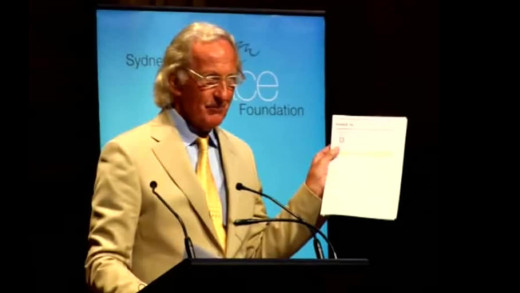What do popular television programs like What Not to Wear, The Biggest Loser, Queer Eye for the Straight Guy, and The Swan tell us about how to look and feel? What do they tell us about what a good life is supposed to look like? Brand New You explores these questions, and also asks what it means to be an authentic self in an extensively mediated world. It shows how the interventions featured in makeover shows—from weight loss to cosmetic surgery to rearing competitiveness—create, perpetuate and reproduce conventional norms of physical attractiveness and success. By taking a wider social and cultural view, Brand New You also shows how these programs have become tools of rampant individualism, consumerism and inner self-transformation at precisely the same time that collective awareness of social issues has dissipated.
The legacy of the Bush administration and the so-called "War on Terror" includes a new logic that stretches well beyond the realm of overzealous security agencies, airport security and international relations, and into suppressing public protest; expanded surveillance aimed at entire populations, but especially activists; and mobilising fear for social control. Special police techniques have even been developed and applied in order to specifically suppress dissent and manage protests, especially in the wake of the rising anti-globalisation movements towards the turn of the millennium. Preempting Dissent provides a quick overview of how some of this logic developed, as well as a glimpse of how political protest in the West has been shaped and controlled in the "post-9/11" years, up to and including the so-called Occupy movement. By provoking a reflection of the implications of the logic of the "War on Terror" and how its applied to stifle political protest, Preempting Dissent aims to lay some of the groundwork to develop more effective resistance tactics.
Social media networks purport the ability to interact with culture—talking directly to artists, celebrities, movies, brands, and even one another—in ways never before possible. But is this real empowerment? Or do marketing companies still hold the upper hand, as before? Generation Like explores how the perennial quest for identity and connection is usurped in the pervasive game of cat-and-mouse by vast corporate power in the extensive machine for consumerism that is now the online environment. The audience becomes the marketer; buzz is subtly controlled and manipulated by and from real-time behavioural insights; and the content generated is sold back to the audience in the name of participation. But does the audience even think they're being used? Do they care? Or does the perceived chance to be the 'next big star' make it all worth it?
We live in an absolutely saturated media environment of images that span 'real' and fake—whether it's newspaper and tabloid photos, journalism itself, art and culture, or the human body. Images claim to be hardly distinguishable from the originals, while the virtual world is increasingly becoming 'seamless' in the real world. Kids today see a Clown Fish but instead impose their imagery of Finding Nemo. People interact with machines more than they do living beings. The narratives imposed by this technological and media culture are fast seeking to entirely replace the real world with a simulation of it. So what does that mean for the truth? The Industry of Fake explores the shifting boundaries and inequality in journalism and in art, as well as providing a basis to question this culture's fascination with simulacra—a process of mimicry mediated by images that represents the real thing, but is not the real thing. What does it mean if we value our projections or stories about the thing as opposed to the thing in-and-of itself? What does this mean in the real world if we come to value our simulations or representations as more authentic things as opposed to copies or toxic mimics?
Oh Dearism II
A look back on the news events from 2014 reveals a confusing, muddled mess. Things are increasingly chaotic, along with the reporting of the events in the culture of 24-7 rolling news, sound-byte feeds and the Internet. The result, as we see, is not a coherent public understanding of these complex events, but more a profound mass-confusion, with discourse destroyed, which in-turn broods disengagement from the world and further atomises an already divided-and-conquered public. It is this response that is a powerful form of social control, and is by design...
For many years, there has been widespread speculation, but very little consensus, about the relationship between violent video games and violence in the real world. Joystick Warriors draws on the insights of media scholars, military analysts, combat veterans, and gamers themselves, to examine the latest research on the issue. By setting its sights on the wildly popular genre of first-person shooter games, Joystick Warriors exploring how the immersive experience these games offer link up with the larger stories this culture tells about violence, militarism, guns, and manhood. It also examines the gaming industry's longstanding working relationship with the United States military and the arms industry, showing how the games themselves work to sanitise, glamorise, and normalise violence while cultivating regressive attitudes and ideas about masculinity and militarism.
In Mediastan, an undercover team of journalists drive across central Asia interviewing editors of local media outlets to publish secret US diplomatic cables that were provided to WikiLeaks in 2010. Success is varied. And so, after regrouping with Julian Assange in England, questioning the editor of the Guardian, and obtaining candid footage of the New York Times editor and its publisher Arthur Sulzberger, Mediastan closes by leaving the viewer with an informative first-hand overview of the machinations of mainstream media. By venturing into the minds—and actions—of the people and institutions who shape the news, Mediastan shows the system for what it's worth, and reveals its true motivations...
Project Censored explores the inner workings of mainstream media in the United States—a media which is often claimed as a free press in a democratic society. But is this really true? Instead what is revealed is a widespread and systemically entrenched culture of censorship and omission throughout the corporate media, as well as a gripping control over media content by centralised corporate control. Project Censored brings to light stories that have been deliberately suppressed, or at the very least obscured and 'hollowed-out' by entertainment values over real news content or discourse. Citing a range of examples and modern mainstream media techniques, Project Censored takes a critical view of this information arrangement that has huge implications for real democracy...
The Society of the Spectacle is a film based on the 1967 book of the same name by French political theorist and philosopher, Guy Debord. The work traces the development of modern society, in which Debord argues that authentic social life has been replaced with representations, and that the history of social life can be understood as "the decline of being into having, and having into merely appearing." This emerges from and gives rise to a pervasive and all encompassing spectacle in which relations between commodities have supplanted relations between people, in which "passive identification with the spectacle supplants genuine activity." The film weaves the text of the original book with modern-day imagery, illustrating many elements of the spectacle, including that "the spectacle is not a collection of images, rather, it is a social relation among people, mediated by images." This makes the material hard to decipher at times, especially with conflicting subtitles between languages: but this is part of Debord's goal, to "problematise reception" and force the viewer to be active rather than passive. In addition, the words of some of the authors are "détourned" (hijacked) through deliberate misquoting. The result is a foundational work on the concept of the spectacle and its characteristics, to encourage critical thinking, to build and extrapolate critiques to apply to the wider social scale.
Obey
Obey is a video essay based on the book "Death of the Liberal Class" by author and journalist Chris Hedges. The film charts the rise of corporatocracy and examines the trending possible futures of obedience in a world of unfettered capitalism, globalisation, staggering inequality and environmental crisis -- posing the question, do we resist or obey?
How has a culture of readily-accessible and ubiquitous pornography that is largely free-to-view on laptops, mobile phones, and televisions, shaped young peoples' nascent ideas and expectations of love, sex and relationships? This short follows a group of teenagers who, with unflinching honesty and realism, reflect on the influence of porn on their lives. Has it changed their sexual tastes and behaviours? What are the differences between boys and girls in their approach to porn? What is the effect of the porn industry's move into ever more hardcore scenes? With exclusive behind the scenes access to the stars and directors at the centre of the international porn industry in LA and Budapest, Love and Sex in an Age of Pornography provides intimate insights into all sides of the porn industry--from the gritty details of porn's production, to its effects on curious youngsters.
Climate Of Doubt is an investigation into the growing forces manipulating public opinion on the scientific consensus of impacts to global climate by industrial civilisation. A massive disinformation campaign is growing from the fronts of government and corporate interests to undermine scientific processes and reshape public perceptions. Climate Of Doubt ventures inside these organisations to demonstrate the strong influence of the global politick on maintaining established denial, and ignoring culpability on the issue of anthropogenic climate change.
John Pilger talks about the various mainstream media commonalities of today--censorship by omission, information management, Public Relations and the 'massaging of information', as well as the clever distractions such as the election of Obama as a war monger in the land of slavery, alongside figures such as Hillary Clinton and Julia Gillard as a false win for so-called 'feminist ideals.' Amongst the ongoing wars played by the United States, Britain and Australia, Media And War -- Challenging The Consensus is a renewed call to unravel complex propaganda and cut through distractions.
Over half a century, Rupert Murdoch's rapacious business audacity has built one of the world's most powerful and ubiquitous media empires. But with revelations of bribery, blackmail, collusion with police and government, wiretapping and other invasions on privacy, the empire seems to be showing cracks. The scandal has prompted criminal investigations on both sides of the Atlantic and also broken open the insular world of the Murdoch family, its news executives, and the vast political elite who court their favour. Murdoch's Scandal tells the story of the battle over the future of News Corporation and the challenging of the extensive media empire...
The Power Principle is a series of films examining the history of the United States and the building of its empire with particular emphasis on the last seventy years of United States foreign policy. The methods that make empire possible are also examined—the politics of fear, the rise of public relations, the 'Mafia Principle' and the reoccurring use of fabled enemies, contrasting the Soviet Union and the Cold War alongside the parallels of today with the "War On Terror". Not only does The Power Principle tie together historical events to revive a common thread, the series may also encourage viewers to reconsider their understanding of historical events and the portrayal of them, showing how those in power play a role in manipulating the collective memory through generations.
When Julian Assange arrived in Sweden in August 2010 he was greeted like a hero. But within weeks there was a warrant out for his arrest and he was being investigated on allegations of rape and sexual misconduct. Today, Assange is cornered in the Ecuadorean Embassy in London, arguing he won't receive justice if he's taken to Sweden and that authorities in the United States are building a case for his extradition. In Sex Lies And Julian Assange, Andrew Fowler retraces what happened in those crucial weeks while Julian Assange was in Sweden. What was the nature of his relationship with the two women? And what happened with the police and prosecutors?
Sexy Baby
An ex-pornstar, a 12 year old girl, and a 22 year old who yearns for the 'normal' genitals as seen in porn movies, are just some of whom are chronicled in Sexy Baby to draw together how the current relentless culture of pornography, social media and popular culture are deeply and profoundly affecting the lives women and girls. Based on intimate and candid conversations with kids in middle school classrooms, suburban shopping malls, nightclubs, college dorms, and high school house parties, the film chronicles trends among small town and big city kids--the pervasive culture affects everyone, everywhere. Most youngsters know someone who has emailed or texted a naked photo of themselves. Many kids have accidentally or intentionally had their first introduction to sex be via hardcore pornography online. Facebook has created an arena where kids compete to be "liked" and constantly worry about what image to portray. Much of what was once private is now made public. The list goes on. Sexy Baby is a powerful indictment of the Internet age and the hyper-sexualised culture affecting women and girls everywhere, as well as an insight into the struggle of parents navigating this new culture, wanting what is best for their kids and the generations to come.
From the courtroom to the lounge room--helped extensively by television and the infamous series "CSI"--forensic science brims with flash and glamour, where cutting-edge technology always reveals the "truth," and is routinely called on to solve the most difficult criminal cases with ease and "objectivity." But how reliable is the science behind forensics and its methods as they interface with the legal system? The Real CSI investigates these questions and finds serious flaws in some of the best-known tools of forensics, with systemic inconsistencies in how evidence is presented in the courtroom, along with how the culture of entertainment of this sort can seriously skew a jury's perceptions. From the sensational murder trial of Casey Anthony, to the FBI's botched investigation of the Madrid bombing, to capital cases in rural Mississippi of the United States; The Real CSI documents how a field with few standards and unproven science can seriously undermine the concept of justice, and what this means for a future of continued technological escalation...
From tiny tots strutting bikini-clad bodies in beauty pageants to companies marketing itty-bitty thongs and padded bras directly to 9-year olds; images of ever-younger sexualised girls pervasively saturate the media landscape. Add to that: ever-younger boys with 24-7 access to hard-core internet porn and the situation permeates every aspect of their lives--from skate parks to the school bus. By the time they’re eighteen, 80 percent of boys are watching porn online. Then add to that smart phones and social networking websites, and kids can not only consume X-rated images, but can now also produce them. Sexting has become a Grade 7 right of passage. Sext Up Kids exposes how growing up in a hyper-sexualized culture hurts everyone. Teens and pre-teens show and tell what they are doing and why they are doing it. Psychologists and social researchers reveal startling new evidence, tracking how the pressure to be sexy is changing teen and sexual behaviour in alarming ways. Parents and educators struggle to help kids navigate puberty in a world where the line between pop culture and porn culture is increasingly blurred. For every parent who thinks, “that’s not my son or daughter,” Sext Up Kids is your wake up call.
The huge and complex problems of today often instil doubt and fear that everything is futile. Yet by analysing how the power of media, schooling and parenting have moulded us, #ReGENERATION helps us start to comprehend what we must change—both as a generation and as a culture. We see how the average family spends at least four hours a day in front of the TV. Internet and video games are not included in this figure. So guess what is shaping us? This film examines the corporate forces that deeply influence all of us, but particularly the young, providing insights into how the politics of apathy is perpetuated, and how we can turn this around into activism, if and when we are willing.
Chasing Ice follows acclaimed nature photographer James Balog and his team on a bold assignment for National Geographic: to capture images of the arctic that reveal the extent of the Earth’s changing climate. The result is the Extreme Ice Survey. Spanning years of work and technical challenges, EIS shows the breathtaking icescapes of Alaska, Iceland and Greenland, providing undeniable evidence of a changing planet. Hauntingly beautiful images compress years into seconds, and capture ancient mountains of ice in motion as they disappear at a breathtaking rate. Chasing Ice also tells Balog's personal story of transformation, from climate change skeptic to activist, putting his own body on the line to tell the world what is happening through his and his team's imagery.
High Tech, Low Life follows the journey of two Chinese bloggers who travel their country chronicling undner-reported news and social issues stories. Using laptops, mobile phones, and digital cameras, both develop skills for reporting while learning to navigate China's continually evolving censorship regime and the risks of political persecution. The film follows 57-year-old 'Tiger Temple,' who earns the title of China's first "citizen reporter" after he impulsively documents an unfolding murder; and 27-year-old 'Zola' who recognises the opportunity to be famous by reporting on sensitive news throughout China. From the perspective of vastly different generations, both personalities must reconcile an evolving sense of individualism, social responsibility and personal sacrifice. The juxtaposition of Zola's coming-of-age journey from veggie-farmer to Internet celebrity; and Tiger Temple's commitment to understanding China's tumultuous past, both provide a portrait of China and of the wider questions facing news-reporting in the age of the Internet.
Ninety percent of American media is controlled by five big, for-profit-conglomerates, creating a media monopoly of informational and social control never before possible. The overwhelming collective power of these firms raises troubling questions about democracy. Using a handful of in-depth cases out of a vast array of examples, speaking with renowned journalists, activists, and others, Shadows of Liberty reveals the hidden machinations of the news media, drawing into focus the vast mechanisms of censorship, cover-ups, and corporate control that have been built up over many decades. Journalists are prevented from pursuing controversial news stories, people are censored for speaking out against abuses of government power, and individual lives are shattered as the arena for public expression has been turned into a vessel for advertising, warmongering and distraction. Will the Internet remain 'free', or succumb to the same control by the same handful of powerful, monopolistic corporations--as we see?
Page One
With the Internet surpassing print as the main news source, and newspapers going bankrupt, Page One chronicles the mainstream-media industry's transformation, while commenting on what it views as the high stakes for democracy and informedness as told from inside the newsroom at The New York Times. For a year, this film follows journalists at the paper's Media Desk, a department created to cover the transformation of the media industry. Through this prism-within-a-prism, a complex view emerges of a media landscape fraught with both decline and opportunity, as writers like David Carr track print journalism's metamorphosis even as their own paper struggles to stay vital and solvent, publishing material from WikiLeaks and encouraging writers to connect more directly with their audience. Meanwhile, rigorous journalism is still alive, but is facing perhaps the most tumultuous time in generations.
Lifting The Veil explores the historical role of political parties in the United States as the graveyard of social movements, the massive influence of corporate financing in elections, the absurd disparities of wealth, the continuity and escalation of neoconservative policies with the Obama administration, the insufficiency of mere voting as a path to reform, and differing conceptions of democracy itself. Lifting The Veil exposes the vast hypocrisy of the United States government, with a sense of urgency to bring about real systemic social and political change...
As we wait to see whether Rupert Murdoch will fall from power and lose control of News International, Every Day is Like Sunday tells the forgotten story of the dramatic downfall of Cecil King—the newspaper mogul who used to dominate British media in the 1960s, before Rupert Murdoch arrived.
John Pilger talks at a public forum in Sydney about the recent revelations of WikiLeaks and the importance of leaked information in exposing the lies and machinations of Public Relations in mainstream media and political rhetoric. Pilger demonstrates the parallels with the plight of Julian Assange and the treatment of David Hicks through the United States legal system, and also explains using recent leaked documents why state power sees investigative journalists and others as a major threat to the established order...
The Bro Code unpacks and takes aim at the forces of masculinity that condition boys and men to fundamentally dehumanise and disrespect women. The film breaks down a range of contemporary media forms that are saturated with sexism—movies and music videos that glamorise misogyny, pornography that trades in the brutalisation and commodification of women, comedy routines that make light of sexual assault, and a slate of men's magazines and TV shows that propagate myths of what it means to be a man in this culture: that it's not only normal, but "cool" for boys and men to control and humiliate women. There's nothing natural or inevitable about this mentality. And it's extremely harmful in the real world. By setting the myths against reality, The Bro Code challenges young people to step up and fight back against this culture, to reject the fundamental idea that being a 'real man' means disrespecting women.

